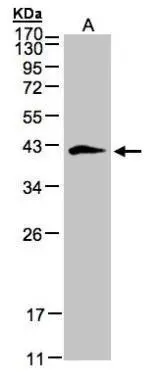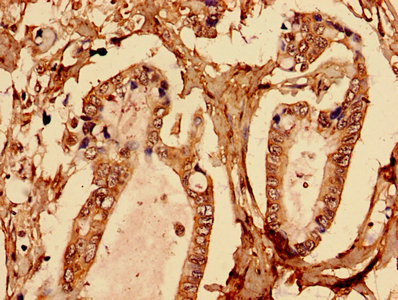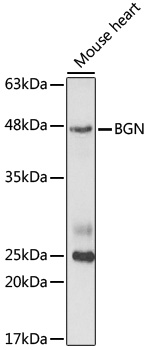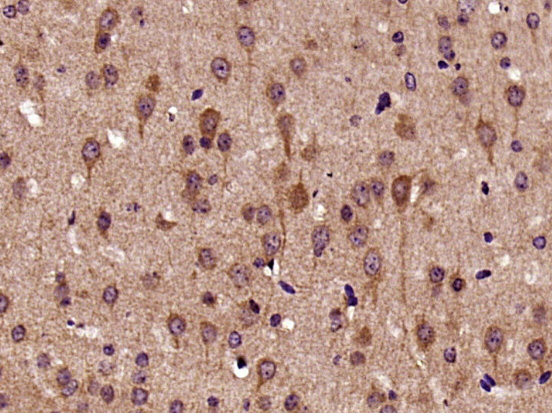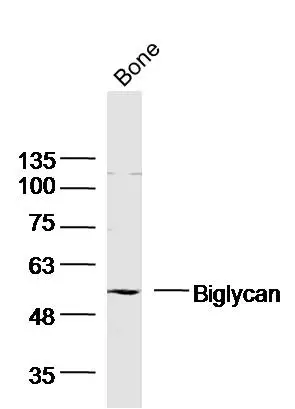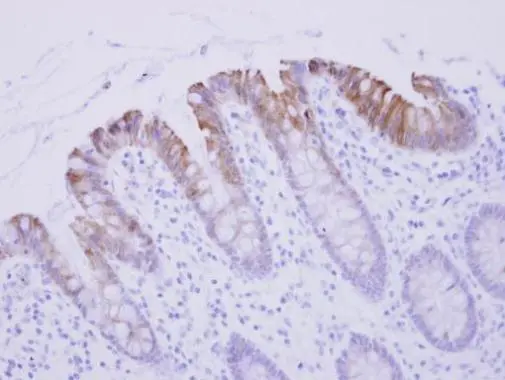
Biglycan antibody detects BGN protein at cytosol on human Colon Epithelium by immunohistochemical analysis. Sample: Paraffin-embedded Colon Epithelium. Biglycan antibody (GTX102765) dilution: 1:250.
Antigen Retrieval: Trilogy? (EDTA based, pH 8.0) buffer, 15min
Biglycan antibody
GTX102765
ApplicationsWestern Blot, ImmunoHistoChemistry, ImmunoHistoChemistry Paraffin
Product group Antibodies
ReactivityHuman
TargetBGN
Overview
- SupplierGeneTex
- Product NameBiglycan antibody
- Delivery Days Customer9
- Application Supplier NoteWB: 1:500-1:3000. IHC-P: 1:100-1:1000. *Optimal dilutions/concentrations should be determined by the researcher.Not tested in other applications.
- ApplicationsWestern Blot, ImmunoHistoChemistry, ImmunoHistoChemistry Paraffin
- CertificationResearch Use Only
- ClonalityPolyclonal
- Concentration0.27 mg/ml
- ConjugateUnconjugated
- Gene ID633
- Target nameBGN
- Target descriptionbiglycan
- Target synonymsDSPG1, MRLS, PG-S1, PGI, SEMDX, SLRR1A, biglycan, bone/cartilage proteoglycan-I, dermatan sulphate proteoglycan I, small leucine-rich protein 1A
- HostRabbit
- IsotypeIgG
- Protein IDP21810
- Protein NameBiglycan
- Scientific DescriptionThe protein encoded by this gene is a small cellular or pericellular matrix proteoglycan that is closely related in structure to two other small proteoglycans, decorin and fibromodulin. The encoded protein and decorin are thought to be the result of a gene duplication. Decorin contains one attached glycosaminoglycan chain, while this protein probably contains two chains. For this reason, this protein is called biglycan. This protein is thought to function in connective tissue metabolism by binding to collagen fibrils and transfering growth factor-beta. It may promote neuronal survival. This gene is a candidate gene for the Happle syndrome. [provided by RefSeq]
- ReactivityHuman
- Storage Instruction-20°C or -80°C,2°C to 8°C
- UNSPSC41116161

